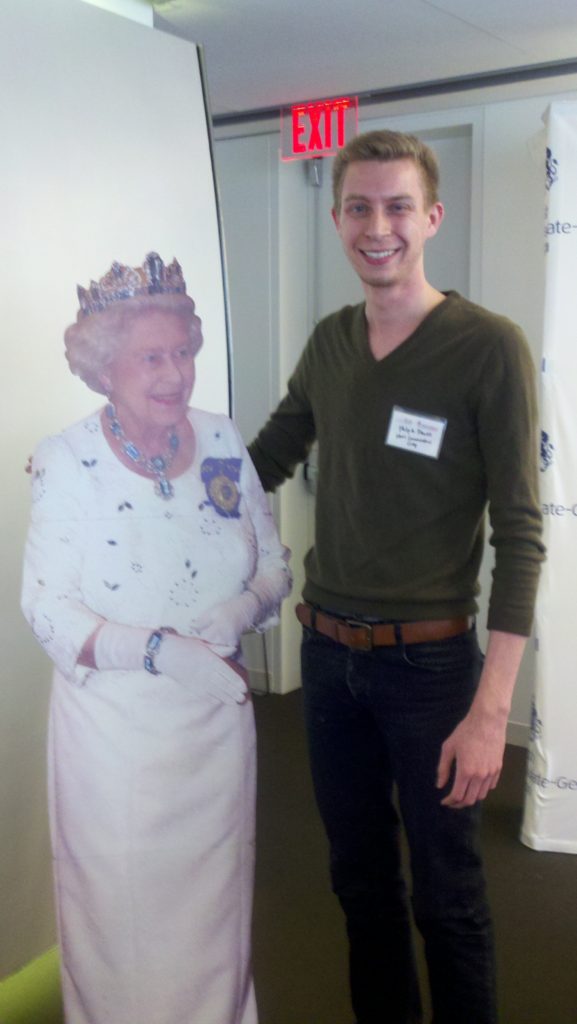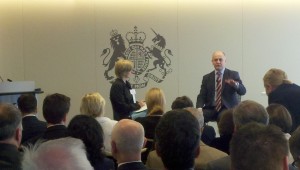

Went to the British Consulate Tuesday morning (June 4, 2013) expecting to hear the Right Hon. Jeremy Hunt, MP, the UK Secretary of State, speak about recent changes in the British health care system–but at the start of the session, Vice Consul Anne Avidon explained that Hunt had been called to Downing Street and that she’d done her best to replace him with someone of equal or higher rank. Avidon then pulled out a life-sized cardboard photo of the Queen–commenting that “she listens a lot but doesn’t say much.”

The levity continued as the Consulate team collected the results of a networking game, in which attendees had been handed scrabble letters to add to those of others at the event in order to form words related to health care. The winning word–Edata–brought five people Cadbury chocolate bars from England.
In a Q& A session with Consul General Susie Kitchens, the real speaker, Tim Kelsey, national director for patients and information of the UK’s National Health Service Commissioning Board, outlined several components of what a Consulate publication describes as “the most widespread changes in England’s National Health Service since its inception in 1948.”
One key change, effective since April 1, is that 80 percent of the UK healthcare budget (approximately $120B), has been “devolved” from the Department of Health to frontline clinicians. These clinicians form new Clinical Commissioning Groups and are responsible for designing, delivering, and paying for local health services.
Some other changes involve requiring doctors at various level to share treatment and mortality outcomes, increased patient participation in assessing their own care, and the digitization of all health care records by 2018.
The event was sponsored by UK Trade and Investment and the British American Business Council of New England.
–Anita M. Harris
New Cambridge Observer is a publication of the Harris Communications Group, an award-winning public relations and digital marketing firm based in Cambridge, MA.



